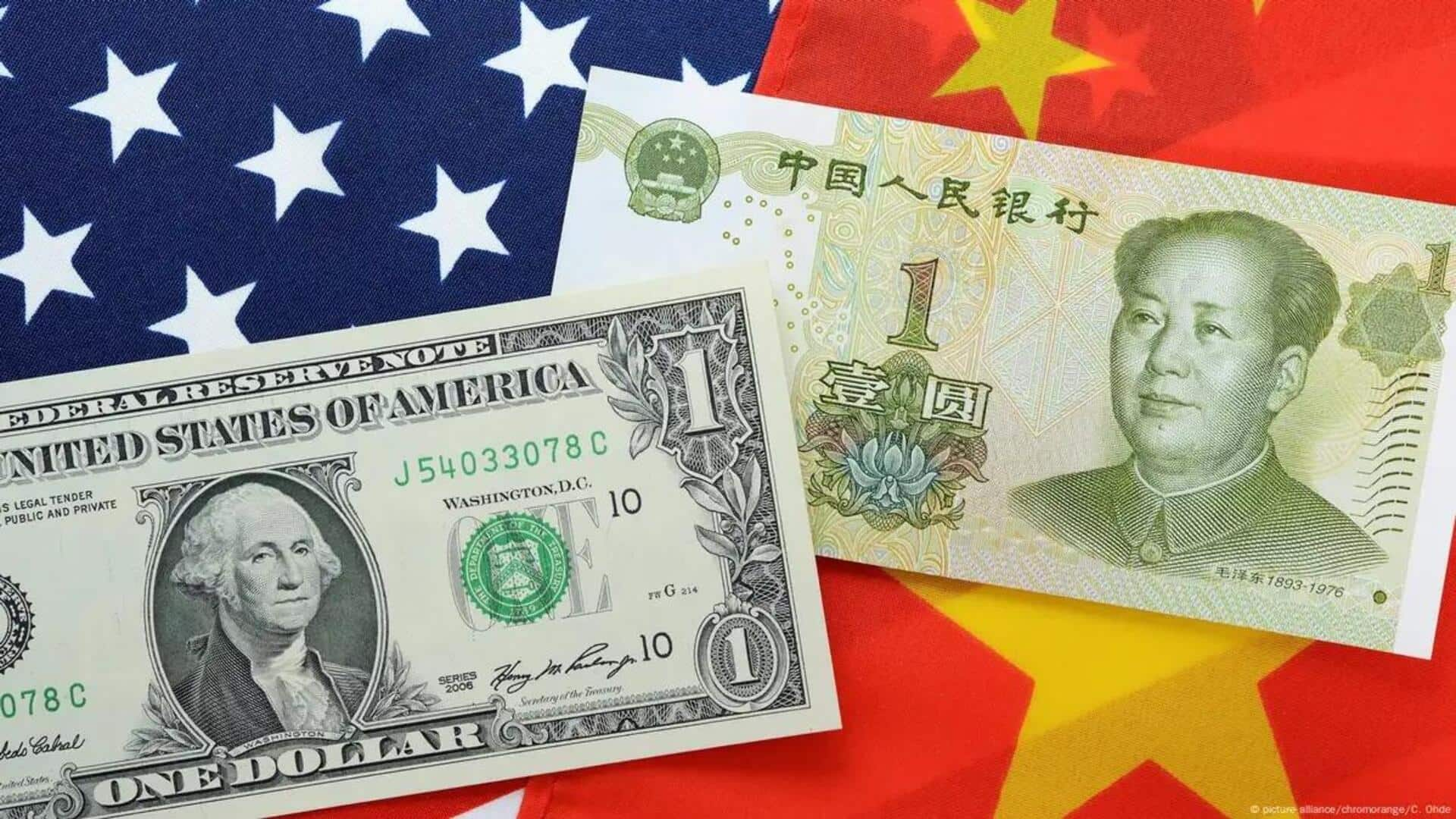
China may let yuan fall to counter Trump's increased tariffs
What's the story
China is mulling a strategic move to let its currency, the yuan, weaken in 2025. The move comes as the country prepares for increased US trade tariffs with Donald Trump's return to the White House on January 20, 2025. Analysts expect the yuan could fall to 7.37 per dollar by year-end, depending on Trump's tariff moves.
Tariff impact
Trump's tariff plans and China's counter-strategy
Trump has detailed plans to implement a 10% universal import tariff and a mind-boggling 60% tariff on Chinese imports. In retaliation, China is considering letting its currency weaken. This move could make Chinese exports cheaper, countering the effect of tariffs and boosting China's economy. The People's Bank of China (PBOC) is likely to keep currency support but may allow market forces more leeway on the yuan's value.
Policy change
China's shift in economic strategy amid trade tensions
China intends to follow an "appropriately loose" monetary policy in 2025, deviating from its decades-old stable exchange rate policy. Some analysts recommend temporarily pegging the yuan to a basket of non-dollar currencies, such as the euro, amid trade tensions. This comes in response to Trump's first term when the yuan fell over 12% during tariff disputes.
Devaluation risks
Warnings against aggressive currency devaluation
HSBC's chief Asia economist Fred Neumann has warned an aggressive currency devaluation could prompt retaliatory import restrictions from other countries. "If China takes the currency aggressively lower, it raises the risk of a tariff cascade and other nations then essentially say, well, if the Chinese currency is weakening dramatically, then we may not have a choice to impose import restrictions on goods from China ourselves," said Neumann.
Regulatory measures
China's non-tariff strategies against US economic pressures
China is also employing non-tariff strategies to counter US economic pressures. Beijing has initiated a regulatory investigation into NVIDIA, following which its shares fell 2.6%. China has also threatened actions against American companies, including PVH, the parent of Calvin Klein and Tommy Hilfiger. This could bar PVH from a rapidly expanding market that accounted for 6% of its global revenue last year. These moves come in response to US restrictions on China's access to high-end semiconductors.
Strategic leverage
'Unreliable entity list' and supply chain dominance
China's "unreliable entity list" adds further business obstacles for foreign companies. The list was empty until early 2023 when two US defense contractors were added after a spy balloon incident. Beijing is also using its supply chain dominance in drones and critical minerals as part of its larger strategy to combat US trade policies without worsening its own economic woes.